 A Running Press Miniature Edition 2001, 2014 by Running Press Illustrations 2001 by John Lawrence All rights reserved under the Pan-American and International Copyright Conventions This book may not be reproduced in whole or in part, in any form or by any means, electronic or mechanical, including photocopying, recording, or by any information storage and retrieval system now known or hereafter invented, without written permission from the publisher. The proprietary trade dress, including the size and format, of this Running Press Miniature Edition is the property of Running Press. It may not be used or reproduced without the express written permission of Running Press. 9 8 7 6 5 4 3 2 1 Digit on the right indicates the number of this printing Library of Congress Control Number: 2013954434 ISBN 978-0-7624-5389-4 Running Press Book Publishers A Member of the Perseus Books Group 2300 Chestnut Street Philadelphia, PA 19103-4371 Visit us on the web! www.runningpress.com
A Running Press Miniature Edition 2001, 2014 by Running Press Illustrations 2001 by John Lawrence All rights reserved under the Pan-American and International Copyright Conventions This book may not be reproduced in whole or in part, in any form or by any means, electronic or mechanical, including photocopying, recording, or by any information storage and retrieval system now known or hereafter invented, without written permission from the publisher. The proprietary trade dress, including the size and format, of this Running Press Miniature Edition is the property of Running Press. It may not be used or reproduced without the express written permission of Running Press. 9 8 7 6 5 4 3 2 1 Digit on the right indicates the number of this printing Library of Congress Control Number: 2013954434 ISBN 978-0-7624-5389-4 Running Press Book Publishers A Member of the Perseus Books Group 2300 Chestnut Street Philadelphia, PA 19103-4371 Visit us on the web! www.runningpress.com  CONTENTS
CONTENTS 


 WILLIAM SHAKESPEARE IS THE most studied writer in the history of Western civilization. His body of work includes thirty-eight plays, 154 sonnets, and two epic narrative poems. And its not like he lived to be 100, or anything.
WILLIAM SHAKESPEARE IS THE most studied writer in the history of Western civilization. His body of work includes thirty-eight plays, 154 sonnets, and two epic narrative poems. And its not like he lived to be 100, or anything.
But even if he had, I think we can all agree that the man was insanely prolificand wildly successful in his lifetime. To the people of Elizabethan England, he was a rock star. Think of the popularity of J. K. Rowling, Oprah Winfrey, Elvis, and the Beatlescombined. Even if youve never read any of Shakespeares works, youve probably quoted him countless times without even knowing it.
His words are so timeless, so universal that, over the centuries, they have seamlessly integrated into our lexicon. Surely youve called something a sorry sight. Thats from Macbeth, as is as pure as the driven snow. Bet the last time you said that you hadnt slept one wink, you didnt realize you were quoting Cymbeline. Ever been in a pickle? Well, so was Trinculo in The Tempest. And a wild goose chase? That ones from Romeo and Juliet.
But most importantlyfor our purposes, anywayShakespeare was king of the comeback. His more temper-prone charactersfrom Hamlet to Shylock to Lady Macbeth to just about any and all of the King Henrysdidnt hold their tongues when they were annoyed, hardly ever hesitating before doling out verbal lashings left and right. And yes, he will go there... openly issuing jabs at beauty (or lack thereof), bodily odors, and practically initiating the your momma... insult that still prevails on elementary school playgrounds to this day. For all of Shakespeares words and phrases that are still in frequent use today, there are still many more that have, sadly, fallen by the wayside over the past 400 years.
Lets bring them back: knave, churl, white liverd, sodden-witted, beef-witted, and, of course, a bulls pizzle. Try tossing out one of these next time you find yourself in a heated discussion, and then, well, itll pretty much be checkmate for you, my friend. Evidently, Shakespeare garnered envy early on for his talent and successcritic Robert Greene referred to him in 1892 as an upstart Crowbut his biting wit and dexterity with insults surely left more than one of these critics speechless. From attacks on boorishness to stinging critiques of character and false faith, the masterfully composed affronts are deftly integrated into his plays, securing Shakespeares spot as the sixteenth centurys master of reparteeand bringing welcome moments of levity to even the darkest and most tragic of his tragedies. Presented here are 133 razor-sharp gibes straight from the pen of the Bard himself. The insults and jabs that peppered his plays are neatly compiledand strategically organized by topic, for super-quick referencein this handy, portable tome.
Whether youre dealing with an imbecile, a hypocrite, an egoist, an unwelcome flirt, a villain, any sort of pestor any combination of thesewith this book, youll never find yourself without a comeback again. 

 IN 1623, DRAMATIST BEN JONSON said of Shakespeare: He was not of an age, but for all time. Boy was that a keen and prescient observation, but perhaps even Jonson would be surprised by just how widely read Shakespeares plays are more than 400 years after they were writtenor by the lingering potency of his still-scathing insults. We actually dont know too much about William Shakespeares life (definitively speaking), aside from information found in public records. The son of John Shakespeare (a successful glove maker and community leader who later fell upon hard times) and Mary (Arden) Shakespeare (daughter of a wealthy landowner), William was baptized in Stratford, England (about ninety miles outside of London), on April 26, 1564. He was their third child, but the first to make it out of infancy alive.
IN 1623, DRAMATIST BEN JONSON said of Shakespeare: He was not of an age, but for all time. Boy was that a keen and prescient observation, but perhaps even Jonson would be surprised by just how widely read Shakespeares plays are more than 400 years after they were writtenor by the lingering potency of his still-scathing insults. We actually dont know too much about William Shakespeares life (definitively speaking), aside from information found in public records. The son of John Shakespeare (a successful glove maker and community leader who later fell upon hard times) and Mary (Arden) Shakespeare (daughter of a wealthy landowner), William was baptized in Stratford, England (about ninety miles outside of London), on April 26, 1564. He was their third child, but the first to make it out of infancy alive.
Although no school records from this time exist, most agree that due to his relatively well-to-do family, it is likely that Shakespeare was a student at King Edward VI Grammar School in Stratford, where he would have learned Latin and literature. There are no records indicating his having attended university. In 1582, Shakespeare married Anne Hathaway, a farmers daughter who was 26 and already pregnant with their first child at the time of their union. He was only eighteen at the time, which was considered a minor, so the marriage required the written consent of his parents. Daughter Susanna was born on May 26, 1583. (Sadly, Hamnet later died at age 11.) They had no more children, most likely due to the fact that Shakespeare soon after moved to Londonthen a thriving city of between 150,000 and 200,000 residents and where he would live over the next twenty yearsleaving his family behind in Stratford, though still taking care of them financially. (Sadly, Hamnet later died at age 11.) They had no more children, most likely due to the fact that Shakespeare soon after moved to Londonthen a thriving city of between 150,000 and 200,000 residents and where he would live over the next twenty yearsleaving his family behind in Stratford, though still taking care of them financially.
He even took care of his folks, likely paying the fees for his father to be granted a family coat of arms in 1596. What exactly Shakespeare was doing (and where) between the years 1585 and 1592 is somewhat of a mystery, leading many scholars to refer to this period as the lost years. Speculation regarding what he may have spent those years doing includes: traveling the continent; studying law; teaching; and apprenticing with a butcher. We do know, though, that by the time 1592 rolled around, he had written at least three plays, one of whichHenry VI, Part Iwas a smashing success, performed nightly to audiences of between 2,000 and 3,000 people. Half of these attendees stood (for many hours!) and were called groundlings. The rest of the audience sat in more expensive seats in three galleries.
Next page

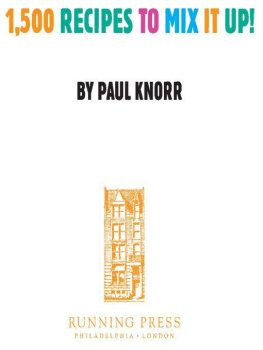
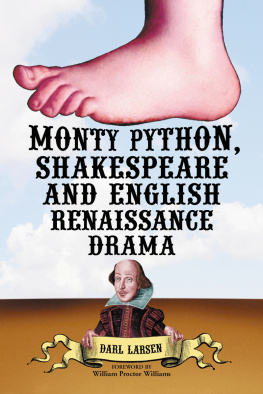
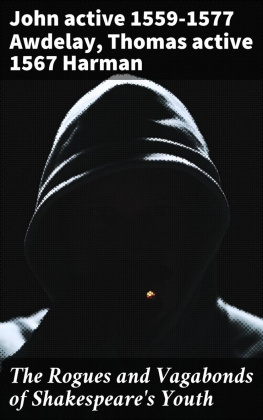
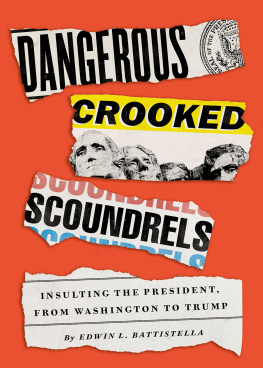
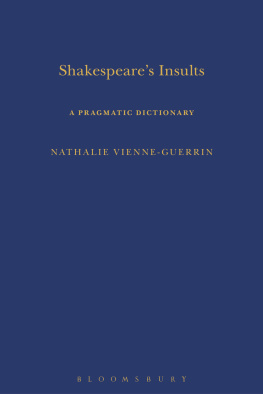
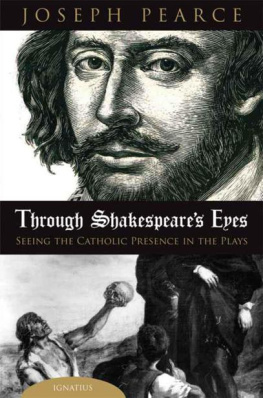
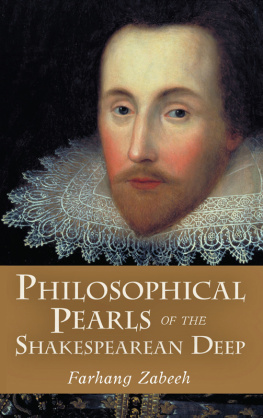

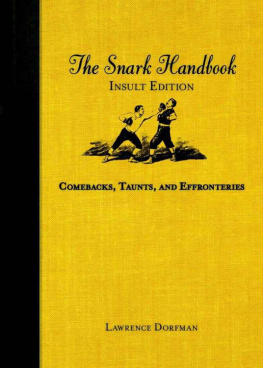
 A Running Press Miniature Edition 2001, 2014 by Running Press Illustrations 2001 by John Lawrence All rights reserved under the Pan-American and International Copyright Conventions This book may not be reproduced in whole or in part, in any form or by any means, electronic or mechanical, including photocopying, recording, or by any information storage and retrieval system now known or hereafter invented, without written permission from the publisher. The proprietary trade dress, including the size and format, of this Running Press Miniature Edition is the property of Running Press. It may not be used or reproduced without the express written permission of Running Press. 9 8 7 6 5 4 3 2 1 Digit on the right indicates the number of this printing Library of Congress Control Number: 2013954434 ISBN 978-0-7624-5389-4 Running Press Book Publishers A Member of the Perseus Books Group 2300 Chestnut Street Philadelphia, PA 19103-4371 Visit us on the web! www.runningpress.com
A Running Press Miniature Edition 2001, 2014 by Running Press Illustrations 2001 by John Lawrence All rights reserved under the Pan-American and International Copyright Conventions This book may not be reproduced in whole or in part, in any form or by any means, electronic or mechanical, including photocopying, recording, or by any information storage and retrieval system now known or hereafter invented, without written permission from the publisher. The proprietary trade dress, including the size and format, of this Running Press Miniature Edition is the property of Running Press. It may not be used or reproduced without the express written permission of Running Press. 9 8 7 6 5 4 3 2 1 Digit on the right indicates the number of this printing Library of Congress Control Number: 2013954434 ISBN 978-0-7624-5389-4 Running Press Book Publishers A Member of the Perseus Books Group 2300 Chestnut Street Philadelphia, PA 19103-4371 Visit us on the web! www.runningpress.com  CONTENTS
CONTENTS 

